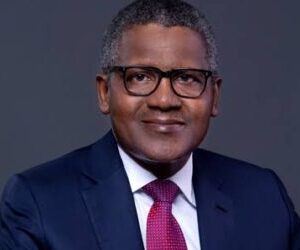

While presenting the 2025 Appropriation Bill to a joint session of the National Assembly, President Bola Ahmed Tinubu vowed to bring inflation rate down to 15 per cent by the end of 2025. No one believed the president could deliver on his promise.
Even the incurable optimists in the president’s cabinet might have silently contended that this was one of the wishful thinking that had informed government’s policies in the last 15 years.
There was every reason to doubt the possibility of the president delivering on his budget inflation rate projection. Headline inflation was spiraling at 34.6 per cent while food inflation was perilously close to 40 per cent.
The disorderly retreat of the naira in the foreign exchange market blocked any chance of bringing down inflation rate, as it accelerated imported inflation beyond the control of the Central Bank of Nigeria (CBN).
Despite all the odds against the delivery of the president’s budget inflation rate projection at the time of the presentation of the 2025 Appropriation Bill, the latest report on inflation rate from the National Bureau of Statistics (NBS) has vindicated Tinubu as the first president in the last 15 years to deliver on his promise on budget inflation rate projection. His predecessors missed the mark by wide margins.
In his eight years on the saddle, the late President Muhammadu Buhari missed almost all his budget inflation rate projections. The 2022 budget was predicated upon an inflation rate of 12 per cent. At the end of the year, the inflation rate was standing menacingly at 18.5 per cent, well over six percentage points above the budget inflation projection.
Last week the NBS shocked Nigerians and the entire world as it announced the inflation rate dropping to 16.05 per cent. That is less than one percentage point above the target set by the president during the presentation of the 2025 Appropriation Bill. There are strong indications that with the 2025 end of year harvest just a few weeks away, the expected bumper harvest might drive inflation rate below the president’s budget inflation rate projection of 15 per cent.
The tumbling inflation figure has invalidated the CBN’s erroneous diagnoses of excess liquidity as the cause of inflation. The war against inflation was eventually won on the back of a bumper harvest rather than escalating cost of funds as a result of excessively high monetary policy rate (MPR) which has been the major weapon used by the CBN in its one-handed war against inflation.
Now the cost of garri has tumbled by 50 per cent from N30,000 per 50kg bag to a scant N15,000. That is not because of the CBN’s grip on the cost of funds. It is because there is a glut of cassava in the market at the moment as a result of the bumper harvest recorded this year.
With inflation taking a steady retreat, the federal government should target the exploitative ventures of retailers and the sabotage by trade unions like the National Union of Road Transport Workers (NURTW), in a bid to protect consumers from unpatriotic elements in the economy. At the pace inflation rate has retreated consecutively in the last seven months, the federal government can successfully drive inflation rate down to single digit if it is able to clip the wings of retailers and greedy unionists.
The retailers make things very expensive for the majority who cannot afford bulk purchase. The cost of a basket of tomatoes has dropped below N10, 000. The retailers sell that basket of tomatoes in a way that they make a minimum of N50,000 from a basket bought at N7,000 in some instances.
That is the height of profiteering and it is what is keeping inflation at double digits. We would be talking about single digit inflation rate at the moment if retailers and NURTW members are willing to cooperate with the federal government in the fight against inflation.
The NURTW keeps transport fares artificially high even as petrol price has dropped by N200 per litre. It heightens the cost of evacuating food items from rural farm communities.
When the cost of transportation is factored into the cost of the food items, the price becomes prohibitively high. A consumer recently bought huge tubers of yam at N600 each in a remote village in Ibadan. That size of yam is sold in Lagos by retailers at N3,000 after factoring in high transport cost.
Retailers and the NURTW may make it impossible for consumers to enjoy the expected bumper harvest if the federal government fails to clip their exploitative wings.
Nigeria’s economy is moving in a positive direction. The nation’s foreign reserves hit the $46 billion target last week partially because of the increase in crude oil export proceeds.
President Tinubu’s war against crude oil theft is yielding a measure of dividend even though the war is yet to be won. The president ordered the military to clip the wings of the mega oil thieves and they responded with heightened patrol of the creeks of the Niger Delta where the thieves haul their loot to international waters for sale to crooks waiting for cheap stolen oil.
Consequently, Nigeria’s crude oil production has inched up to 1.7 million barrels per day. That is partially responsible for the increase in foreign reserves. However, the figure is still far from the 2.02 million barrels per day set as the 2025 budget crude oil production target. No one knows how that target will be met.
Despite the challenges in meeting the budget’s crude oil production target, the CBN can join in the fight against inflation by easing its grip on the cost of funds. With headline inflation at 16.05 per cent, there is no reason MPR should remain at 27 per cent. The high cost of funds is a big contributor to spiraling inflation.
If the cost of funds is four percentage points above the inflation rate, single digit inflation may be months away.







